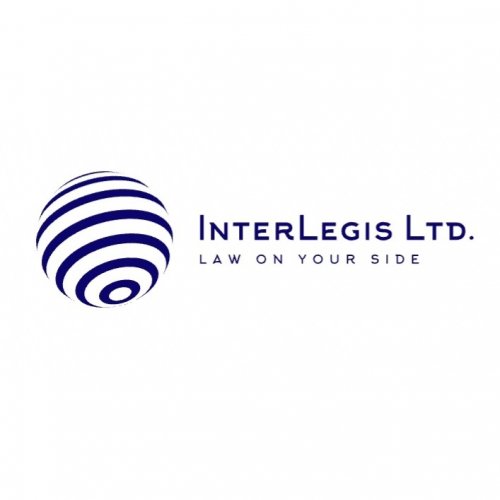Best E-commerce & Internet Law Lawyers in Bulgaria
Share your needs with us, get contacted by law firms.
Free. Takes 2 min.
Or refine your search by selecting a city:
List of the best lawyers in Bulgaria
About E-commerce & Internet Law in Bulgaria
E-commerce and Internet law in Bulgaria encompasses a wide range of legal issues related to online business activities and digital transactions. This field of law deals with rules governing online contracts, digital signatures, electronic payments, consumer rights protection, data privacy, and intellectual property. Bulgaria's legal framework is heavily influenced by European Union directives and regulations, which the country has transposed into its national law. As e-commerce continues to grow at a rapid pace, the legal landscape surrounding it is constantly evolving to address new challenges and opportunities.
Why You May Need a Lawyer
Individuals and businesses involved in e-commerce and internet-based operations may need legal advice for various reasons. Some common situations include:
- Setting up an online business and understanding the legal requirements.
- Drafting and reviewing terms and conditions for online platforms.
- Ensuring compliance with data protection and privacy laws.
- Navigating intellectual property issues, such as trademarks and copyright infringements.
- Resolving consumer disputes and handling complaints effectively.
- Addressing cybersecurity concerns and issues related to digital security.
- Understanding taxation and financial regulations associated with online sales.
- Compliance with advertising standards and marketing regulations.
Local Laws Overview
Key aspects of Bulgarian laws relevant to e-commerce and internet law include:
- Electronic Commerce Act: This act regulates online contracts, digital signatures, and provides a framework for the operation of electronic shops and marketplaces.
- Personal Data Protection Act: Aligns with the GDPR, setting rules for data collection, processing, and storage.
- Consumer Protection Act: Protects consumer rights in online transactions, including rights to information, cancellation, and product returns.
- Copyright and Related Rights Act: Governs the use and protection of intellectual property in the digital environment.
- Cybersecurity Act: Establishes measures for the protection of network and information systems in Bulgaria.
Frequently Asked Questions
What is the legal age for entering into an online contract in Bulgaria?
The legal age to enter into a contract in Bulgaria is 18 years. However, minors aged 14-18 can enter into contracts with parental consent or if the contract is for a minor's personal needs.
Are e-signatures legally recognized in Bulgaria?
Yes, e-signatures are legally recognized under the Electronic Commerce Act, which aligns with EU regulations on electronic identification and trust services.
How does Bulgarian law protect consumer data in e-commerce?
The Personal Data Protection Act, in compliance with GDPR, ensures consumers' personal data is processed lawfully and transparently, with appropriate security measures.
What are the obligations of e-commerce businesses regarding VAT in Bulgaria?
E-commerce businesses must register for VAT if their annual turnover exceeds a certain threshold. They must charge VAT on sales within the EU and comply with local tax regulations.
How do Bulgarian laws regulate online advertising?
Online advertising is regulated under the Bulgarian Advertising and Competition Acts, ensuring ads are truthful, non-deceptive, and not violating fair competition principles.
What is the distance selling regulation in Bulgaria?
The Consumer Protection Act includes rules on distance selling, granting consumers the right to cancel and return goods within 14 days, with few exceptions.
How does Bulgaria address cybersecurity threats for online businesses?
The Cybersecurity Act provides a framework for protecting essential network and information systems against cyber threats and mandates the reporting of cybersecurity incidents.
Are there specific laws regarding online marketplaces in Bulgaria?
Online marketplaces must comply with general e-commerce regulations, including transparent terms of service and consumer rights protection, as stipulated in the Electronic Commerce Act.
How can I protect my intellectual property online in Bulgaria?
Register trademarks and copyrights with the relevant authorities and enforce your rights through monitoring and legal action against unauthorized use.
What dispute resolution options are available for e-commerce issues?
Disputes can be resolved through negotiation, mediation, arbitration, or litigation. The Consumer Protection Commission also offers mediation services for consumer disputes.
Additional Resources
For legal advice or further information on E-commerce & Internet Law in Bulgaria, consider consulting the following resources:
- Bulgarian Consumer Protection Commission
- Commission for Personal Data Protection
- Ministry of Economy of Bulgaria
- Bulgarian Chamber of Commerce and Industry
Next Steps
If you require legal assistance in the field of E-commerce & Internet Law in Bulgaria, consider the following steps:
- Consult with a lawyer specialized in e-commerce and internet law to assess your specific legal needs.
- Gather all relevant documents and information concerning your case or business activities.
- Research local law firms or legal practitioners with a track record in e-commerce law.
- Schedule a legal consultation to discuss your issues and explore potential solutions.
- Stay informed about changes in local and EU regulations affecting e-commerce and digital business operations.
Lawzana helps you find the best lawyers and law firms in Bulgaria through a curated and pre-screened list of qualified legal professionals. Our platform offers rankings and detailed profiles of attorneys and law firms, allowing you to compare based on practice areas, including E-commerce & Internet Law, experience, and client feedback.
Each profile includes a description of the firm's areas of practice, client reviews, team members and partners, year of establishment, spoken languages, office locations, contact information, social media presence, and any published articles or resources. Most firms on our platform speak English and are experienced in both local and international legal matters.
Get a quote from top-rated law firms in Bulgaria — quickly, securely, and without unnecessary hassle.
Disclaimer:
The information provided on this page is for general informational purposes only and does not constitute legal advice. While we strive to ensure the accuracy and relevance of the content, legal information may change over time, and interpretations of the law can vary. You should always consult with a qualified legal professional for advice specific to your situation.
We disclaim all liability for actions taken or not taken based on the content of this page. If you believe any information is incorrect or outdated, please contact us, and we will review and update it where appropriate.
Browse e-commerce & internet law law firms by city in Bulgaria
Refine your search by selecting a city.













